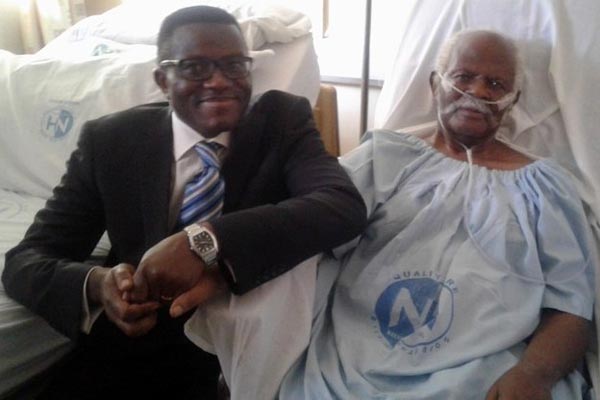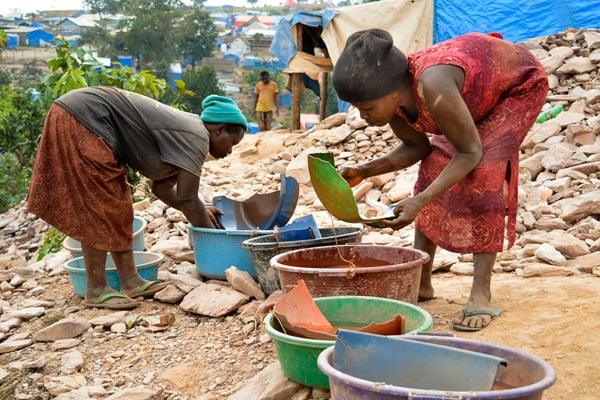Prime
VIDEO: Mayanja Nkangi’s candle burns out
What you need to know:
Cause of death. Family members said he breathed his last at 8am at Nakasero Hospital in Kampala after battling pneumonia for weeks
Kampala:
, 85, a member of Uganda’s first Independence cabinet, senior minister during the early years of President Museveni’s reign and last elected Katikkiro of Buganda Kingdom has died.
Family members said he breathed his last at 8am yesterday at Nakasero Hospital in Kampala after battling pneumonia for weeks.

Deceased. Joash Mayanja Nkangi
Coming of age at a time when the machinations that resulted in the independence of Uganda were approaching full throttle, Nkangi was one of the select group of the elite that plunged into the political waters.
READ:
ALSO READ:
In 1959, upon return from London where he had been called to the Bar having finished his law studies, he formed the political youth wing connected that was loyal to Buganda Kingdom, then a key player in the pre-independence politics.
In 1960 Nkangi started the United Party, which soon afterwards merged with Ignatius Musaazi’s Uganda National Congress (UNC). Unhappy that the members of the United Party members had decided to merge with UNC, Nkangi moved on and formed the United National Party in the lead up to 1961 pre-independence elections.
After the March 1961 election, which Benedicto Kiwanuka’s Democratic Party won, a pro-Buganda Kingdom pressure movement, Kabaka Yekka (KY), was formed and Nkangi was one of its officials. Riding on a KY ticket, Nkangi was elected to parliament to represent Masaka in May 1962, an election won by the alliance of Milton Obote’s Uganda Peoples Congress and KY.
Nkangi was then appointed minister without portfolio and later scooped the docket of Commerce and Industry. His service in the Obote I government, however, would not last as relations between UPC and Buganda Kingdom, then led by Kabaka Edward Mutesa II, also the titular head of state, soured.

Buganda Katikkiro Charles Peter Mayiga (L) visiting former Justice minister and Katikkiro Joash Mayanja Nkangi at Nakasero hospital earlier. Courtesy photo
Nkangi remained loyal to his Kabaka amid the floor crossings of KY members to the UPC side in Parliament, a decision for which he would in 1964 be rewarded with being elected Katikkiro of Buganda. He had to resign as minister of commerce and industry in the central government for this reason. To become Katikkiro, Nkangi beat Kabali Masembe in a hotly contested race in the Buganda Lukiiko.
But his troubles had just started. The year he assumed the seat of Katikkiro, 1964, was the same year the controversial referendum that returned to Bunyoro Kingdom from Buganda the two “lost counties” of Buyaga and Bugangaizi. After this referendum, relations between Obote and Mutesa, which had already soured, were in freefall until the attack on Mutesa’s palace in Mengo in what has been called the Buganda/Uganda Crisis of 1966.

Mutesa fought off the attackers and fled to exile in England, and Nkagi was hidden by friends for some weeks as they planned his escape. In 2013 Nkangi told this reporter how he managed to escape into exile, crossing the border into Kenya as a trailer turn-boy in an oil-soaked overall.
From Nairobi he escaped to Nairobi, where he was first housed by his former Makarere University lecturer. In London he stayed in constant touch with Mutesa until the former’s death in 1969.
Between 1967 and 1971 Nkangi taught economics at the University of Lancaster in the UK and on return home in 1971 after Idi Amin had overthrown Obote he opened his law chambers, Mayanja Nkangi and Co Advocates, on Nkurumah road.
Nkangi returned to Uganda after Amin announced that the body of Mutesa, which had been kept in London because it wouldn’t be returned when Obote was still in power, would be returned for burial. His objective, as Katikkiro even if kingdoms had been banned, was to oversee the preparation for the burial of the deceased Kabaka before returning to the UK to escort the body back home. Even if Amin had commanded the attack on Mutesa’s palace in 1966, Nkangi was still grateful that at least, as president, the self-styled Field Martial has allowed the return of Mutesa’s body.

Nkangi arrives at Parliament when he was Finance minister.
After discharging his cultural function silently Nkangi settled into his law practice until 1980 when, after Amin’s ouster in 1979, multi-party politics and Nkangi attempted to rally pro-Buganda forces under the Conservative Party as he vied for the presidency.
But the train had long left the station and most Baganda had long forgotten the differences between DP and Buganda Kingdom. They rallied behind DP’s Paul Ssemogerere and against Obote’s UPC, although Obote still emerged on top after one of Uganda’s most controversial elections.
In the end Nkangi and a youthful Yoweri Museveni, the running as standing on the ticket of the Uganda Patriotic Movement, were reduced to also-runs.
Nkangi then went back into his law practice until he was appointed minister of labour in the Okello Lutwa’s short-lived regime until January 1986.
When Museveni took over from Lutwa, Nkangi was first appointed education minister from 1986 to 1989, before becoming minister of finance and economic planning, and then justice and attorney general. He served in Museveni’s government until 2002.
His last public appointment was as chairman of the Uganda Land Commission, which he left in 2014 to revert to his usual fallback position as a private legal practitioner.
Buganda Kingdom had by press time constituted a six-man committee to help in the burial arrangements, but it was expected that Nkangi will be accorded a State funeral. He is expected to be buried in Kanyogoga, the village of his birth, on a date that had not yet been communicated by the time of this report.
Family
Cause of death. Family members said he breathed his last at 8am at Nakasero Hospital in Kampala after battling pneumonia for weeks.
READ MORE





